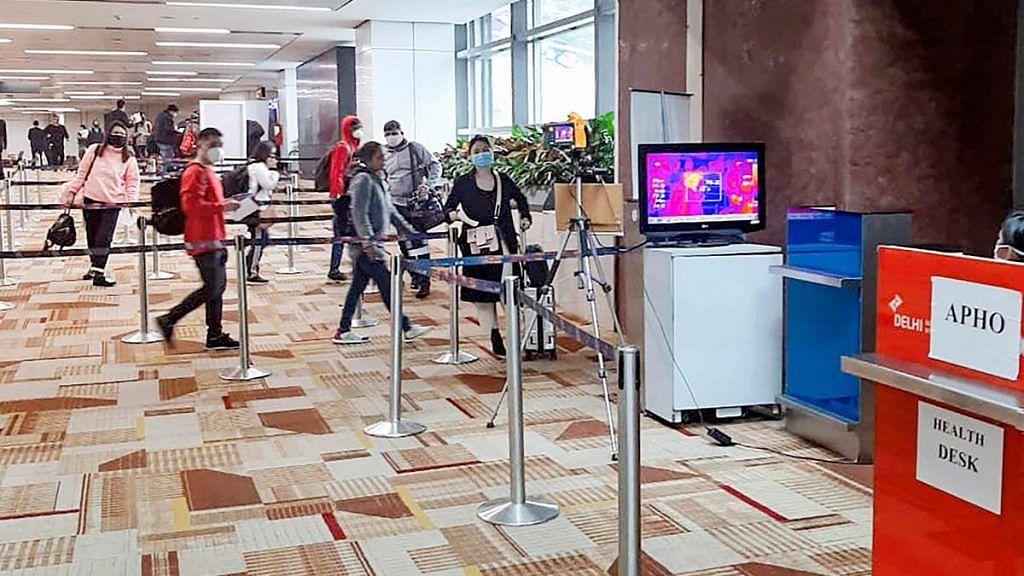Bengaluru: The Ministry of AYUSH Wednesday issued an advisory for the “prevention” of infection from the novel strain of coronavirus using homoeopathy, and “symptomatic management” using Unani medicines.
In its advisory, which met with instant criticism on social media, the ministry recommended a course of Arsenicum album30, used in homeopathy to treat influenza-like illness. The prescription came after the 64th meeting of the Central Council for Research in Homoeopathy Tuesday.
The advisory also recommended Unani preventive treatments such as drinking shadang paniya, consuming samshamani, agastya harityaki, and other Unani drugs.
It also gives a dietary recommendation of “easily digestible, light and soft diets”, apart from personal hygiene tips that are generally issued by health experts across the board to prevent air-borne infection.
The novel coronavirus strain has no known cure or preventive vaccine yet, according to health experts around the world. Further, there is no evidence that the prescribed diet or medicines work.
The strain was discovered just over a month ago and was confirmed earlier in January. It has so far killed over a hundred people and spread to 15 countries. The virus can spread through air even before its common cold-like symptoms can manifest in an individual, and can escalate to fatality in some cases.
The Ministry of AYUSH — which stands for Ayurveda, Yoga & Naturopathy, Unani, Siddha, Sowa Rigpa and Homoeopathy — has come under repeated criticism for propounding pseudoscientific medicine as alternative medicine.
Also read: China is perfectly prepared to fight coronavirus
Arsenicum album and homoeopathy
Arsenicum album is a highly diluted solution of arsenic trioxide which effectively contains little to no arsenic after dilution. It is used by practising homoeopaths to treat various symptoms — not diseases — such as digestive disorders and common cold, as well as arsenic poisoning.
As a homoeopathic prescription, it is considered generally safe since the resultant contains almost no arsenic at all, but “improperly used” homoeopathic preparations in treatment have resulted in cases of arsenic poisoning in India.
Arsenic is highly toxic to humans and in controlled doses is used intravenously to treat cancer of the white blood cells. Mild arsenic poisoning through ingestion has symptoms identical to coronavirus — diarrhoea, vomiting, fever, runny nose and headaches. Arsenicum album treatments, like other homoeopathic treatments, are not considered scientifically and medically sound or effective.
Homoeopathy as a system was created by the German physician Samuel Hahnemann in 1796 under the premise that similar symptoms (not diseases) can be cured with similar remedies. It involves repeatedly diluting a substance with water and sugar until not even a single molecule of the original substance is present in the final solution.
Due to the dangers posed by not obtaining the desired treatment for an affliction, homoeopathy is declared a pseudoscience and isn’t allowed any form of government funding in multiple countries such as Australia, Switzerland, England, and France. It is banned in Spain. The European Academies’ Science Advisory Council, and the Commission on Pseudoscience and Research Fraud of Russian Academy of Sciences have both concluded that it is ineffective and poses significant harm.
Also read: Coronavirus poses new threat to global economy which was just beginning to stabilise
Unani medicines
Unani is an Arabic system of medicine, originating in ancient Greece, based on the Greek system of four fluids or humours in the body — phlegm, blood, yellow bile and black bile. It has heavy Indian and Chinese influences in its practice.
The system believes that each person’s body is composed of a unique combination of these four humours and treatments for diagnosis follow the patterns of Izalae Sabab (elimination of cause), Tadeele Akhlat (normalisation of humours) and Tadeele Aza (normalisation of tissues/organs).
There are several Indian universities devoted to Unani medicine, which provide graduation as well as postgraduation degrees.
However, practitioners of Unani are not authorised to practise medicine in India unless they are also trained as qualified physicians. Practising Unani medicine and similar forms of rural alternative medicine in India was banned under the Travancore-Cochin Medical Practitioners’ Act of 1953.
The Supreme Court as well as the Indian Medical Association have declared Unani to be ‘quackery’.
In 2018, the Supreme Court said “unqualified, untrained quacks are posing a great risk to the entire society and playing with the lives of people without having the requisite training and education in the science from approved institutions”.
Many Unani treatments are also considered to be poisonous and are not recommended by the World Health Organization.
AYUSH criticism on social media
On Wednesday, several social media users criticised the government move to propagate “unscientific” homoeopathy and Unani medicines.
the government of India (as usual) is peddling unscientific crap
ayurveda, homeopathy and unani are NOT legitimate branches of medicine and have no material proof in curing or preventing such diseases
please don't swallow placebo-inducing sugar pills thinking you'll be safe. https://t.co/u9vV2n8itD
— v̴̢͉̙͙̜̘̣̓͑̽̾̓͘͝ͅo̸̯̮͂̽̉̓̃͝͠͝i̸͎͍͕̭̩̊͆̇̃̅̽̄d̷̿̈́̀̄͑ (@bismillahcamus) January 29, 2020
#Coronavirus breaks out, China embarks on building a 1000 bed hospital in 6 days
India: ye lo homeopathy, 4 goli subah 4 raat ko khaali pet. No onion no garlic. OK?— Raghav Chopra (@RaghavChopra_) January 29, 2020
https://twitter.com/TwinklingTania/status/1222406959179059201
Some users also mocked the advisory in light of reports that China is building hospitals in Wuhan, where the coronavirus cases originated, in a matter of a few days to provide extra beds to control the situation.
China is building 1500 bed hospital in 9 days to control #coronavirus.
Indian Government is advising homeopathy & Unani which are pure quackery.International media, @WHO @UN please take note. https://t.co/XtlRdgXJI4
— Aparna (@chhuti_is) January 29, 2020
Also read: Coronavirus spread pushes drugmakers to hunt for ways to stop pathogen eluding travel curbs
